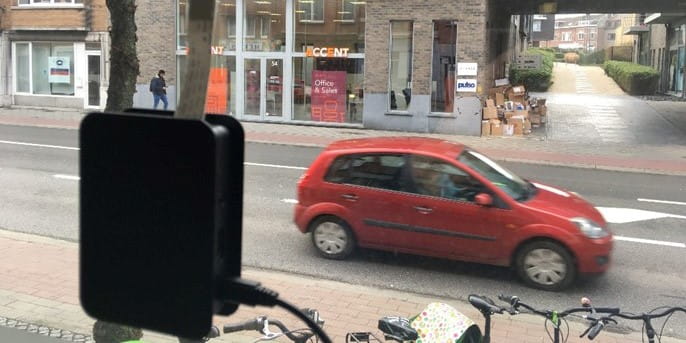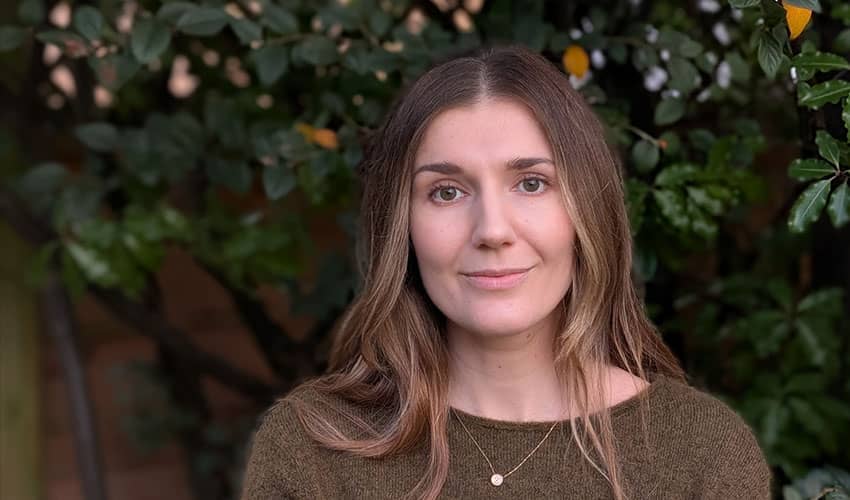Window-mounted sensors in homes to collect data for pioneering traffic study

Residents will fit sensor devices to windows in their homes to collect traffic data for a new citizen-led transport study covering five European cities.
The project involving academics at the University of the West of England (UWE Bristol) will see 1,500 residents install automated traffic counting sensors in their homes that can identify the number and speeds of vehicles, cyclists and pedestrians.
Data will then be used to formulate informed solutions to tackle a variety of road transport challenges, with the aim of improving residents' quality of life.
UWE Bristol is one of seven high-level participants in the Horizon 2020 funded, Citizens Observing UrbaN Transport (WeCount) project. It was established to empower citizens in European cities to take a leading role in the production of the data, evidence and knowledge that is generated around mobility in their own communities.
Air quality and traffic congestion are among the main causes of poor urban living and have sparked rising concerns about the negative impact that transport has on people's health and well-being in urban areas. According to the European Environment Agency, air pollution caused 400,000 premature European deaths in 2016.
As several European cities embark on bold action to improve local transport and promote the use of alternative and clean modes of transport, citizens are now mobilising to have their voices heard and to actively participate in local transport policy development.
Madrid, Ljubljana, Dublin, Cardiff and Leuven are coming together to mobilise 1,500 citizens throughout 2020 by following participatory citizen science methods to co-create road traffic counting sensors based on the popular Telraam experience in Flanders, Belgium.
Crowd-sourcing methods provide cost-effective data for local authorities at a far greater temporal and spatial scale than what would typically be possible in classic traffic counting campaigns and will therefore open up new opportunities for transportation policymaking and research, say the researchers involved in the project.
Professor Enda Hayes, of UWE Bristol's Air Quality Management Resource Centre, said: “Engaging with citizens to help us understand local transport and the built environment is essential to assess and mitigate the impacts of air pollution and the wider determinants of public health.
“The WeCount project, which brings together UWE Bristol staff from the Air Quality Management Resource Centre and the Science Communication Unit, is the perfect vehicle to not only generate data but also promote and support citizen advocacy to work towards cleaner and healthier cities.”
Kris Vanherle, from Transport & Mobility Leuven, and project coordinator, said: “By putting citizens at the heart of the innovation process, WeCount aims to break down technological and societal silos, and holds the high hopes to inspire citizens to champion a new perspective on road transport.”
The seven knowledge partners involved in the WeCount project include SMEs, academic institutions and non-profit organisations. UWE Bristol is participating alongside Transport & Mobility Leuven, Ideas for Change, University College Dublin, University of Ljubljana, Polis and Mobiel 21.
Related news

16 February 2026
UWE Bristol researchers awarded grant to explore impact of asset recovery on offenders
UWE Bristol academics have been awarded funding to explore of the impact of asset recovery on deterring offender behaviour and disrupting crime networks.

10 February 2026
Work by UWE Bristol lecturer features in Government’s National Cancer Plan
Work by a UWE Bristol academic has been included in the Government’s National Cancer Plan.

23 January 2026
On-demand minibus services beneficial in rural areas but face financial challenges, trials suggest
Trials of ‘demand responsive transport’ minibus services boosted connectivity for people in rural and suburban areas, according to a new report produced by UWE Bristol researchers.

18 December 2025
UWE Bristol professor appointed National Institute for Health and Care Excellence CEO
Jonathan Benger CBE, Professor of Emergency Care at UWE Bristol, has been appointed as the new chief executive officer of the National Institute for Health and Care Excellence (NICE).

17 December 2025
Findings revealed from first UK study into experiences of mothers who are survivors of rape pregnancy
UWE Bristol academics have revealed the findings of the first UK-based study of the experiences of mothers who are survivors of rape pregnancy.

11 December 2025
Social media influencer work is far more demanding than it looks, research finds
A study exploring the mental health impacts of social media influencer work has revealed that life online is far more demanding than it appears.

25 November 2025
UWE Bristol experts join film Q&A exploring music and melodrama
Academics will take part in the Cary Comes Home Festival, with a post-screening Q&A exploring music, melodrama and emotional storytelling in classic cinema.

17 November 2025
Urgent reform needed to support ambulance-delivered end of life care, study finds
More than three quarters (78 per cent) of paramedics sometimes fear doing the wrong thing when caring for people in the last year of life, new research has found.

13 November 2025
Bristol’s screen industry experiences “boom-and-bust cycle” after post-pandemic recovery, new research from UWE Bristol finds
New research from UWE Bristol provides detailed insight into Bristol's screen sector.

13 November 2025
New AI research to revolutionise animal welfare
A UWE Bristol research project will combine behavioural science and AI to create technology that understands not only what animals do, but how they feel.

10 November 2025
Lessons from Low Traffic Neighbourhoods will drive better public engagement, study finds
Lessons from Low Traffic Neighbourhoods have informed a new toolkit to improve engagement with the public on challenging local street issues.

06 November 2025
First-of-its-kind study aims to help more people spend their final days at home
A new study will explore how architectural design could support end-of-life care in domestic settings.






